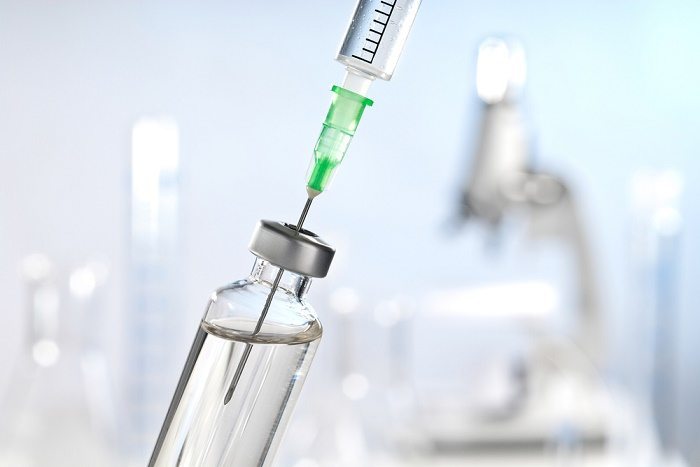New HPV Vaccine Could Prevent Vast Majority of Cases of Several Cancers
Gardasil 9, the newest version of the HPV vaccine to be approved by the FDA, has the potential to prevent 90 percent of cases of cervical, vulvar, vaginal, and anal cancers, but only if the vaccine becomes more widely accepted.

The Food and Drug Administration last month approved a new version of the human papillomavirus (HPV) vaccine Gardasil, which is designed to prevent nine strains of the virus. Public health experts suggest that use of this vaccine, called Gardasil 9, has the potential to prevent 90 percent of cases of all cervical, vulvar, vaginal, and anal cancer, but they stress that this can only happen if the vaccine becomes more widely accepted.
Gardasil, which was introduced in 2006, was the first HPV vaccine to be approved by the FDA. It provides protection against four strains of the virus: 6, 11, 16, and 18.
Strains 6 and 11 cause almost all cases of genital warts, and 16 and 18 are thought to cause 70 percent of cervical cancer cases. A second vaccine, Cervarix, which was approved in 2009, only protects against types 16 and 18. By adding protection against five additional cancer-causing strains (31, 33, 45, 52, and 58), Gardasil 9 has the potential to prevent almost all cases of cervical cancer as well as other HPV-associated cancers.
In fact, in a clinical trial Gardasil 9 was determined to be 97 percent effective in preventing cervical, vulvar, and vaginal cancers caused by the five additional cancer-causing strains.
The new vaccine, like the old, is given as a series of three shots over the course of eight months.
HPV is a highly contagious sexually transmitted infection. The Centers for Disease Control and Prevention (CDC) estimates that 79 million people in the United States are infected with the HPV virus and 14 million new infections occur annually. Though most people won’t suffer long-term health consequences and may never know they have the virus, others may develop cervical cancer or cancers of the head, neck, throat, penis, or anus.
About 12,000 women develop cervical cancer and 4,000 die from HPV every year in the United States. An estimated 3,000 new cases of HPV-associated anal cancers are diagnosed in women and about 1,700 in men. The CDC estimates that 360,000 people get genital warts caused by HPV.
HPV is actually a group of more than 150 related viruses that can infect various parts of the body. There are 40 strains of the virus that are known to be spread through sexual activity.
Research shows the vaccines are working. A 2013 study found that despite the fact that half of teen girls had gotten one dose of the vaccine and fewer than a third had gotten the recommended three doses, the proportion of teen girls infected with the strains of HPV that the vaccine addresses has dropped by 56 percent.
Another study found that states with high HPV vaccination rates had lower rates of cervical cancer, and vice versa.
The vaccines have been controversial since they were introduced; this is reflected in low vaccination rates. The HPV vaccine has suffered largely due to the general movement against vaccinations, which seems to have begun with falsified data suggesting a link between vaccines and autism. The data and the researchers who published it have been thoroughly discredited, but skepticism about vaccinations remains among some segments of the public.
HPV vaccines are even more controversial than others because they protect against a sexually transmitted infection. Some fear that discussing STI prevention with young teens and providing them with protection in the form of a vaccine will encourage sexual activity. A number of studies have found that there is no difference in the behavior or beliefs of young people based on whether they have or have not been vaccinated.
Experts hope that as the new vaccine is introduced, parents will focus less on the STI and more on the fact that we now have the ability to prevent cancer.
“Imagine being the first generation to eliminate a cancer. With vaccines, pap tests, and HPV tests, we have all the tools we need to prevent cervical cancer,” Deborah Arrindell, vice president of health policy at the American Sexual Health Association, told Rewire. “The big challenge remains getting shots into arms—that has to be a priority.”
